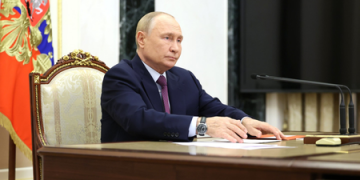Press Trust of India
New Delhi, May 20: Indian Air Force Chief B S Dhanoa has written a personal letter to officers of the force, asking them to be prepared for operations at a “very short notice” to effectively deal with security challenges, including sub- conventional threat, to the country.
In the letter dated March 30, the IAF chief also touched upon a range of issues relating to service matters and asked the officers to be morally upright and mindful of their professional conduct so that image of the force is not tarnished.
Talking about various security challenges confronting the country, Dhanoa, in an apparent reference to Pakistan backing terror groups targeting India, spoke about persistent “sub- conventional threat”, asserting the force should be prepared for operations at a “very short notice”.
“It was a personal letter the IAF chief wrote to the officers covering a wide range of issues that he felt were important,” a senior IAF official said. In the letter, written three months after he took charge as IAF chief, Dhanoa also stressed on the need to mould IAF’s training programme considering the evolving security scenario.
Dhanoa also talked about the need for the IAF to remain ready for operations with its “present holdings”, seen as a reference to IAF’s depleted strength of 33 squadrons of fighter aircraft instead of sanctioned strength of 42 squadrons.
In the letter, he also talked about the need for the IAF to remain conscious about the new technological advancements in war fighting machinery as well as the strength of India’s adversaries.
He also touched upon cases of alleged “favouritism” and “sexual harassment” in the IAF, stressing on the need to maintain high standards of morality and fairness. Dhanoa said image of IAF must not be allowed to affect at any cost.
Union Home Minister Rajnath Singh today asked border guarding force ITBP and governments of Himalayan states to remain “very vigilant” against Chinese transgression along the Sino-Indian border saying such incidents take place due to perceptional differences.
Addressing the first-ever meeting of chief ministers of five Himalayan states, Singh also asked Jammu and Kashmir, Himachal Pradesh, Uttarakhand, Sikkim and Arunachal Pradesh governments to undertake developmental activities along the 3,488-km long Sino-Indian border so that people living in these areas do not have to migrate.
“Due to perceptional differences, there has been transgression by the Chinese PLA in the past. Such incidents have come down now. Sometimes armies of both the countries come face to face which we call face-off. Such incidents are resolved through the existing mechanism,” he said at the meeting.
The meeting comes days after India refused to participate in China’s Silk road project ‘One Belt, One Road’ conference in Beijing and a month after the diplomatic tussle over the Dalai Lama’s visit to Arunachal Pradesh. Chief ministers of Uttarakhand, Sikkim and Arunachal Pradesh Trivendra Singh Rawat, Pawan Kumar Chamling and Pema Khandu respectively and representatives of Jammu and Kashmir and Himachal Pradesh attended the meeting.
“As we are aware Indo-China border is demarcated, we have to be very vigilant while guarding the borders. The ITBP has been guarding the Indo-China border since 2004. They are performing their duty with great courage and alacrity,” he said.
The home minister said inhospitable conditions near the border makes patrolling extremely difficult and in spite of these odds the security forces were doing a great job. He hoped that future action plan on border security will be chalked out after analysing key outcome of independent patrolling along the boundary. Singh said the problem of connectivity in border areas pose several challenges which needed to overcome. The home minister said thinning of population and migration from the border areas is a cause of concern.







































